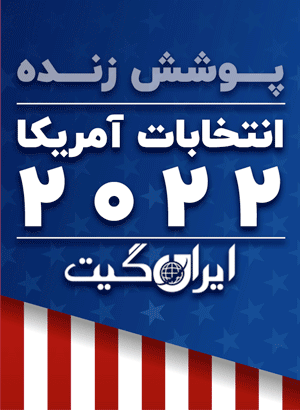The one-year separation of the community from the great sociologist
According to Iran Gate, on the eighth of Farvardin 1402, the first anniversary of the death of Ali Reza Ghaleghali, an Iranian populist researcher, was commemorated. He established a connection with the people through his two books, Elite Assassination and Self-Centered Sociology, and did not remain within the limited circle of elites. Although he demonstrated his expertise in other areas, he was sometimes accused by mainstream sociologists of engaging in non-scientific, populist, or journalistic work because he did not showcase his knowledge and did not use convoluted words. He spoke and wrote explicitly and clearly.
On the occasion of his departure and while the issue of plunder and loot has become a concern for experts and the public, it is not unjustified to mention him, even if it requires republishing parts of a text that I wrote last year on the occasion of his commemoration ceremony at the House of Human Sciences Thinkers.
First, let us know that Ghaleghali was a graduate of Political Science at the Faculty of Law, University of Tehran, and was studying for a doctorate at the School of Political Studies in Paris when the 1979 Revolution occurred. However, academics distanced themselves from him in such a way that it seemed as if he had no university education.
His mental concern was to find out where the problem lies, that Iran is lagging behind in development. The main point he makes in the field of economic sociology is whether it is exploitative or competitive. In his book, ‘If it was North Iranian’, he explores the answer to this question and ultimately finds the secret of underdevelopment in Iran and Iranians through the words ‘exploitative’ and ‘booty’. He tries to explain this concept by examining historical and literary sources, even myths, to show how deeply ingrained it is in our culture, and that without freeing ourselves from it, we cannot take steps towards development.
From his perspective, rent is the same as looting resources. And since governments and jobs are constantly changing hands, those who were hungry yesterday strive for wealth and engage in looting. Looting booty is the same as the anti-development cycle.
He also delved into history and literature to understand the political economy. He even believed that Saadi, the poet, was a strong social analyst. Instability at the top of the political pyramid, instability in the way governments rise and fall, intense social and political movements, a corrupt judicial system, and a looting economy are all thoroughly analyzed and eloquently expressed by Saadi.
Reza Gholi Morad explained his views on predatory institutions in the Iranian economy in the article ‘If I Were an Iranian Northerner’ in the book. One of the interpretations he frequently uses is the cost of exchange in the political market. Today, Iranians understand more than ever that the root of Iran’s economic problems lies in politics.
Another interesting section of the book is dedicated to the perspective of the merchant engineer on Iran’s past society. Quoting him, it says, ‘When there was a discussion about the survival of Iranians at Darolfonoon, I jokingly said, ‘Our survival is in yogurt, because we get along with everyone, regardless of their background. When the Arabs come, we become hotter than soup. When the Turks come, we praise them.’ There is no reason for us to disappear from the pages of history. In the Mongol invasion, anyone who resisted was destroyed, except for those who surrendered and survived.
In his belief, Iranians have only thought about survival, even at the cost of sacrificing themselves, and have not thought about development or the concept of plundering booty has essentially left no room for thinking about development. Reza Esfahani was not there to see the concerns that have arisen following the approval of the plan for generating wealth, a plan through which government assets are sold, and the fear that a new source and origin of rent-seeking will not be created. However, he had warned in advance, and on the first anniversary of his passing, it is appropriate to commemorate him accordingly.
The resolution should not only be in the parliament, but also in the Supreme Council of Coordination of Leaders, where more attention should be paid to these warnings. The essence of Reza Esfahani’s statement was that if the government organization is plundered, it means that it will make ownership rights for the efficient governing body and inefficient for the subjects in the worst possible way. At that time, institutions reward norm-breaking, plundering, and opportunistic behavior, and this in turn becomes the norm for the general public, which is detrimental to the welfare of the people.
To eliminate any misunderstandings, it is necessary to remind that the intention of looting here is not to accuse others, as the public refers to it as stealing from others. Rather, as explained, looting refers to opportunism and living off the expense of others, a way of living in a non-competitive market without productive and creative efforts, which is inconsistent with competitive market behavior, but rather relies on power and connections.
These few lines, quoted from the intriguing article of ‘Crooked Hole’, suggest that when the likelihood of survival through looting is higher and the likelihood of being caught is lower, individuals prefer to abandon hard work and live through looting and fraud.
If institutions reduce the cost of wrongdoing and expand the possibility of living through looting, because people have limited intelligence and reasoning, they identify these paths and prefer to live through looting and rent-seeking. If there are no specific costs associated with acquiring wealth and becoming a leader, everyone desires to change their color and become a leader, as they have not lost anything if they fail, and if they succeed, the nation is the loser and they are the winners.


